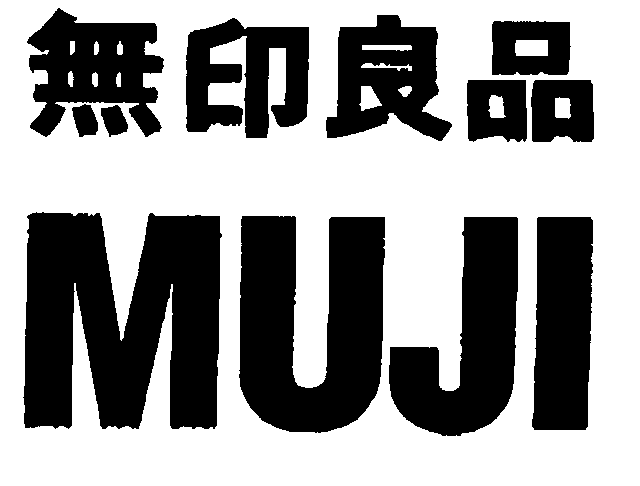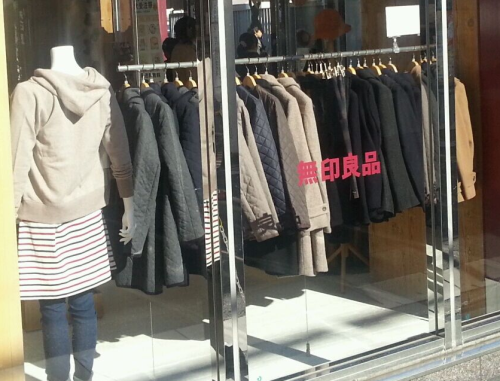|
This note is about a trade mark that means “No trade mark”. The Japanese trade mark MUJI has no meaning per se, but derives from the first part of Mujirushi Ryōhin, translated as "No Brand Quality Goods" which is the philosophy of the Japanese trade mark owner, Ryohin Keikaku Co, Ltd. According to the European website of MUJI, the principle of the company is to develop new simple products at reasonable prices by making the best use of materials while considering environmental issues.
In the Japanese label of the above mark the first character, 無 (mu), means “without/nothing", the second character, 印 (shirushi), means “brand” and the third and fourth character, 良品 (ryohin), mean something like “high quality goods”. This sign on the shop-windows in Japan is really just a descriptor for what’s inside: a huge array of goods including housewares, lighting and clothing made from selected materials with no corporate tag, logos or fancy packaging.

National trade mark applications in Europe for the anglicised name MUJI were filed as early as 1991, followed by Community trade mark registrations.
The word that was designed to be no brand is now a brand. The suggested meaning of the Japanese label got lost in translation because the word MUJI by itself has no meaning, so it has become a brand after all. MUJI is distinguished by its design minimalism, no-logo policy, avoidance of any waste in production and packaging, respect for environmental concern, and, in theory, a no-brand strategy.
Its product range, such as the MUJI Car 1000 (manufactured in a limited quantity in 2001) has been continuously growing and now covers more than 7,000 products in simple packaging bearing only product-related information and a price tag.
The no-brand strategy of MUJI seems to work on the global market as well because after the opening of its first international store in London (in 1991) MUJI now has more than 200 international retail outlets in many European countries, in the United States and in Asia. MUJI goods, many bearing the MUJI trade mark, are also sold elsewhere, such as at the MoMA (Museum of Modern Art) Design Store in New York.
Although many MUJI products are designed with guidance from famous designers working today, MUJI does not promote or even publish its relationships with these designers. The company has new concept stores such as Found. MUJI the non-brand has become a brand and has infiltrated everyday life in course of use of its products by millions but the philosophy behind the original name is kept.
Enikő Karsay, SBGK Patent and Law Offices, Budapest; and member, IP Outer Borders Team
|
 Issue 037
Issue 037
 Issue 037
Issue 037